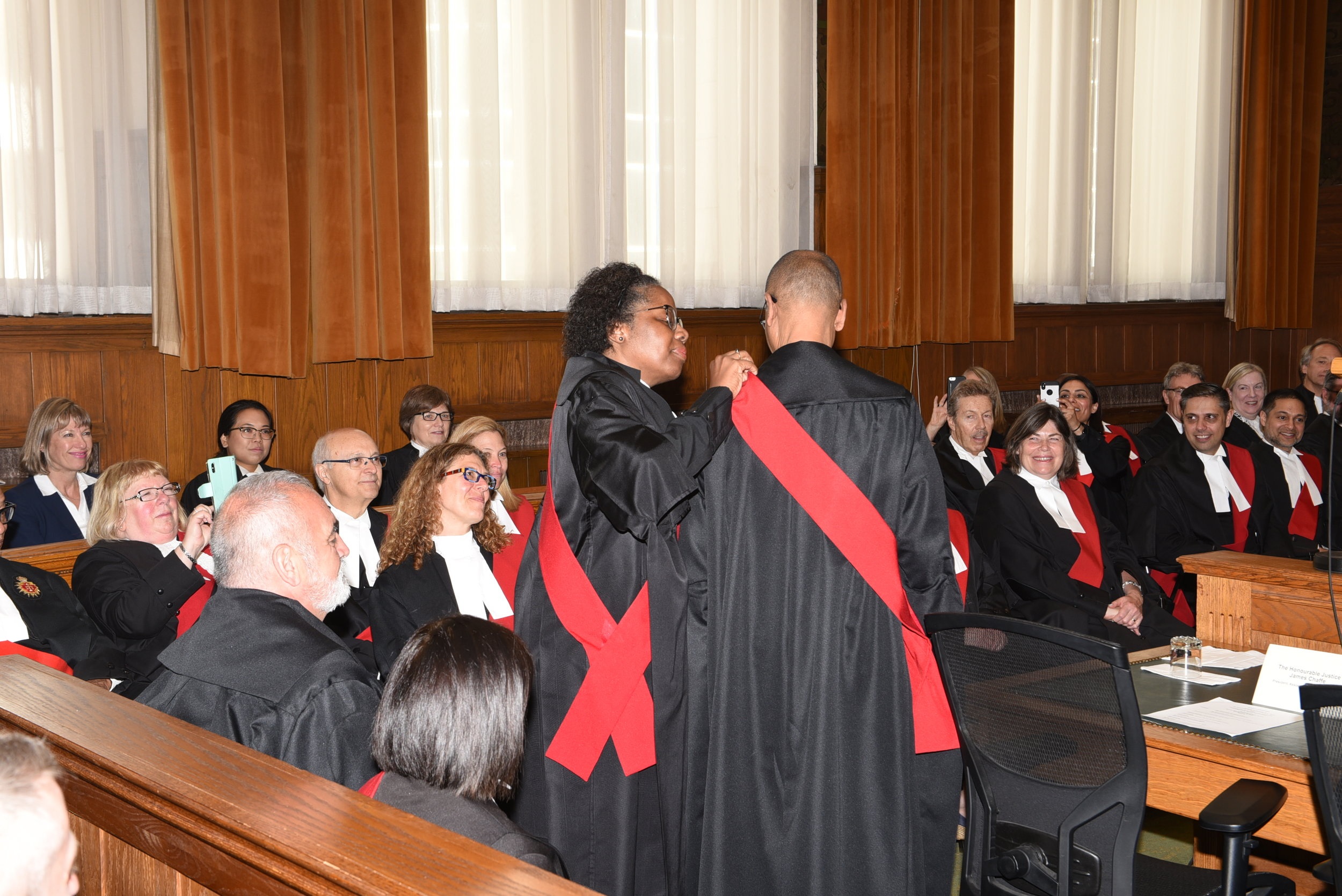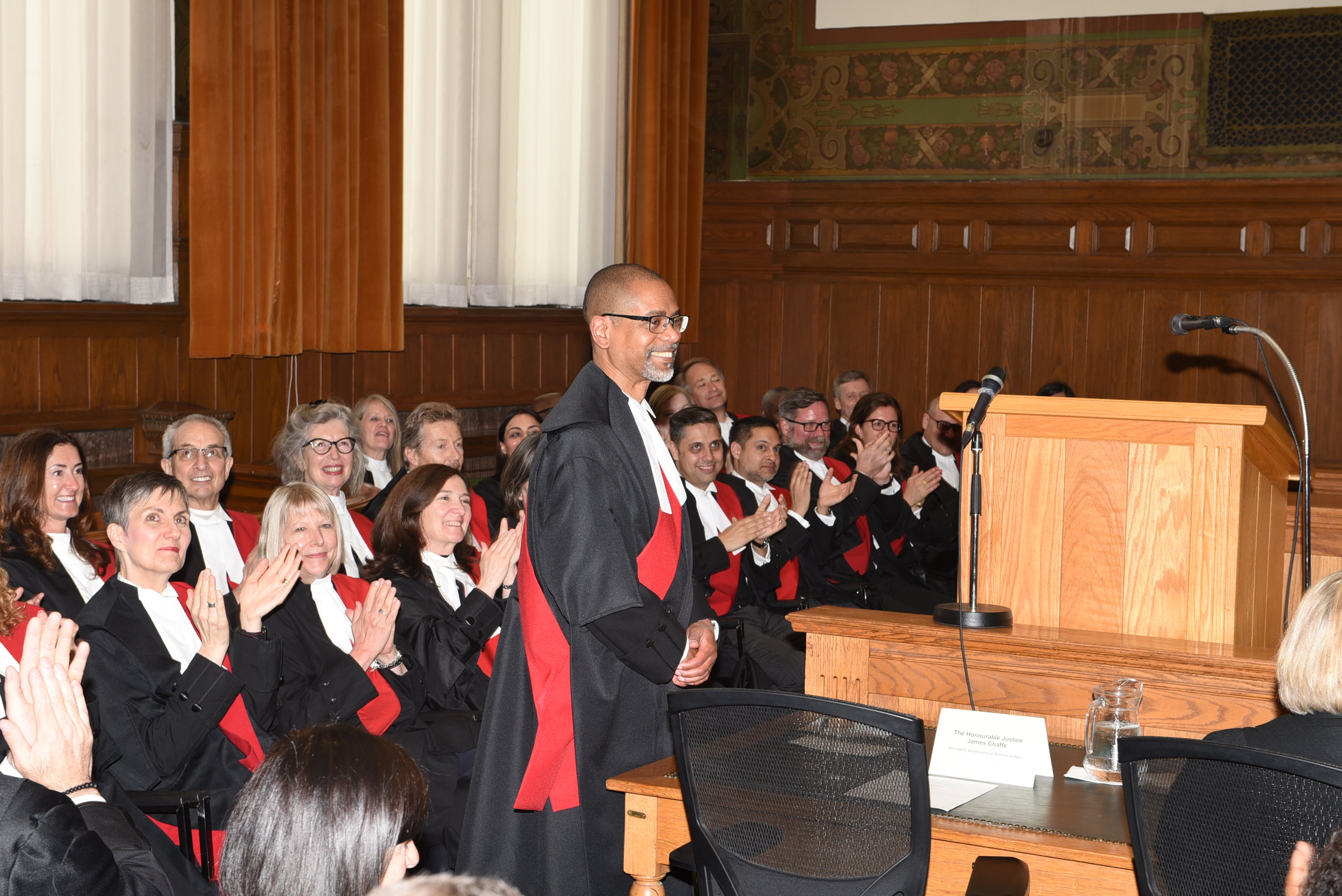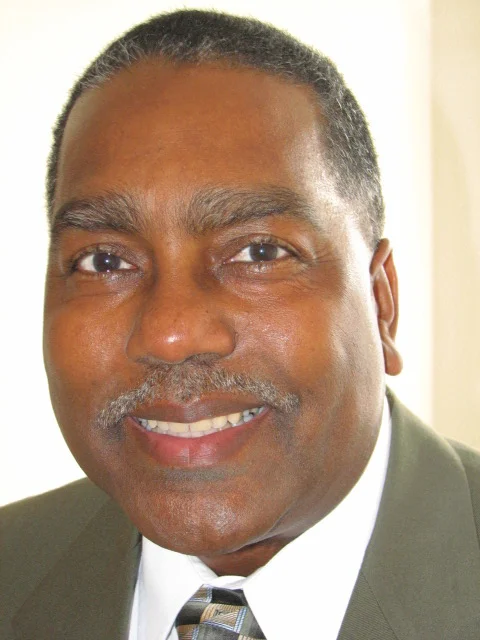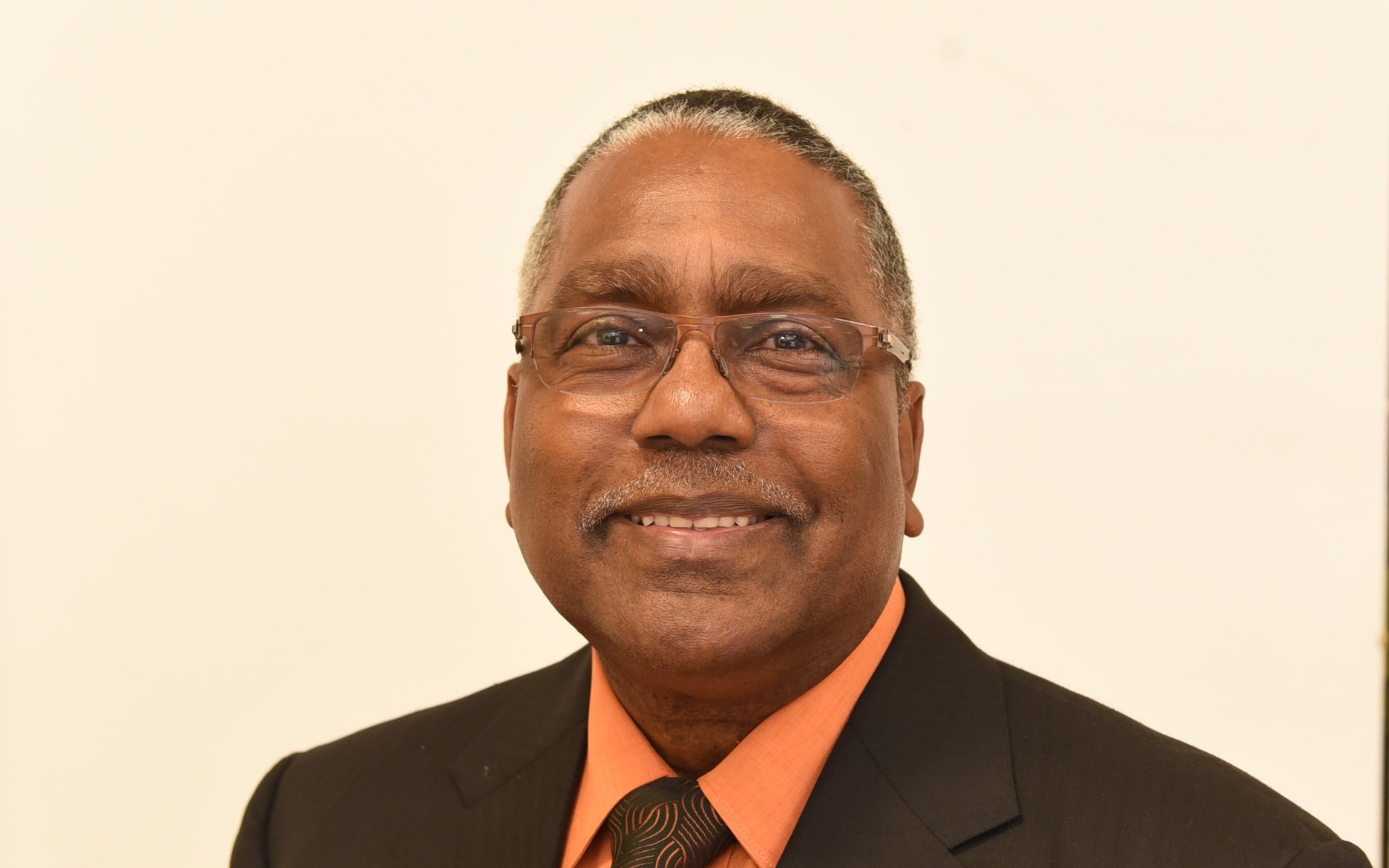New judge was community newspaper journalist
July 15, 2019
Admitted to the University of Ottawa Law School 30 years ago, David Maylor had one question for his wife when he received his acceptance letter.
‘Should We’? he asked Jacquelyn Maylor whose retort was spontaneous.
“Three years from now, I don’t want to hear ‘could have been’,” she replied.
On June 24 in the presence of proud family members and close friends, the former Share community newspaper reporter was sworn in as an Ontario Court judge.
While most lawyers consider a judicial appointment to be the zenith of a legal career, Maylor wasn’t quite prepared for the good news he got on May 9.
“That Thursday afternoon was turning out much to be like any other busy day in our office,” said the new judge who was the Peel Region Crown Attorney since 2013. “When the office phone rang, I figured it was just another problem to deal with. The caller identified herself as Attorney General Caroline Mulroney and I was taken back, especially, when she said I was appointed a judge of the Ontario Court of Justice. When she hung up, I sat in a chair and asked myself, ‘Did that really happen’?”
Justice Lori Montague puts on new judge David Maylor’s judicial sash (Photo by Ron Fanfair)
Confirmation came a few minutes later from Chief Justice Lise Maisonneuve and Regional Senior Judge for the Toronto Region Aston Hall who called to offer their congratulations and provide details of Maylor’s new career path.
Amid the whirlwind of emotion and activity, he has been shadowing judges in the weeks leading up to his swearing-in.
“It’s an honour and privilege to be readily accepted into the fold,” Maylor said.
Peel Region Assistant Crown Attorney Alexander Cornelius said Maylor’s appointment enhances the country’s busiest Court of Justice.
“Every day across this province, a variety of people walk through the doors of our courthouses to appear in the Ontario Court of Justice,” he said. “Whether as accused, victim’s witnesses, lawyers or just interested citizens, they are all hoping to witness or experience the same thing. They are hoping to see a forum in which parties can be heard and witness or experience fairness and compassion. They are hoping to see the administration of justice directed by someone learned in law and capable of dispensing justice.
“So whenever the provincial cabinet signs the Orders-in-Council appointing a member of the Bar to the position of Ontario Court judge, the various users or observers often collectively hold their breath in apprehension. They want to know whether the new appointee meets the standards necessary to administer justice in a fair and compassionate manner. Well, the appointment of David Maylor was one of those appointments where no breath was held and no wait-and-see apprehension was experienced. This was an appointment that left everyone saying, ‘Well, of course David Maylor’. Through the Bench and Bar, it was immediately acknowledged that the Ontario Court of Justice had welcomed someone who met and surpassed the necessary requirements.”
Justice David Maylor and his children Marcus and Nicole (Photo by Ron Fanfair)
Maylor and Andre Chamberlain – an Indigenous man – were sworn in at Old City Hall which was inaugurated in 1899.
In welcoming the new judges to the Bench, Hall said very few people 120 years ago would have predicted a day where there would be a swearing-in ceremony of Black and Indigenous judges conducted by a female Chief Justice of French-Canadian heritage and a Regional Senior Justice of African-Canadian heritage.
“This is truly a glorious day in this region and the province,” he said. “Diversity brings different voices to the national project of building a modern and inclusive Canada. It makes us more complex, stronger, more sophisticated and more interesting as a region. The judiciary must reflect the diversity of the region. The Ontario Court of Justice is attempting to reflect the richness of the region’s diversity. If you will like proof of that, look no further than on the dais today. There is, however, more work to be done although we are making excellent progress.”
Covering the city’s Black community for Share which is Canada’s largest ethnic newspaper, he said, led to the switch in careers.
“I was impressed by people like Lincoln Alexander and Jean Augustine and, through them and others, I came to realize that in order to make a positive contribution in life, public service is the answer,” Maylor pointed out.
Jacquelyn Maylor recalled the moment her husband decided to go to law school.
“He brought the LSAT handbook home one evening and said, ‘I am going to start studying to be a lawyer’,” she recounted. “He would come home from work, have supper and then hit the books at around 9 p.m. and finish at about 3 a.m. in the morning.”
The Law Society Admission Test (LSAT) is a skills-based exam designed to test the critical reading and analytical thinking skills that are crucial for success in law school.
Lawyer Dale Jean-Pierre met Maylor in law school.
She and another friend took notes for him during some classes while he was at home baby-sitting his first child – Marcus – who was born during his second year at the University of Ottawa. His wife was employed at an RBC branch in the nation’s capital at the time.
“In some classes, we were the only two Black students at the time,” Jean-Pierre said. “It was evident that David was destined to be a judge and I kept wondering why the appointment took this long. When he called me a few weeks ago, before he could say anything, I said, ‘You are finally going to be a judge’, and he asked me how I knew. He is a man of integrity, dignity and compassion who is very patient and understanding. He’s a perfect fit for the Bench.”
Justice David Maylor at his swearing-in ceremony (Photo by Ron Fanfair)
Born in Manchester, England to Jamaican immigrants who eventually made their way to Canada in the 1960s, Maylor graduated with an English degree from York University in 1981 and received a Journalism diploma from Sheridan College prior to becoming a reporter in 1985.
“As you may imagine, his success in this field depended on his ability to listen and understand a variety of people and a variety of issues,” said Cornelius. “His success also depended on his ability to analyze information and effectively communicate conclusions and the basis for his conclusions. So it was no surprise that his experiences as a journalist evolved into an interest in studying law.”
Called to the Bar in 1994, Maylor was an Assistant Crown Attorney in Peel for 19 years before being elevated six years ago to Crown Attorney, overseeing about 65 lawyers.
Cornelius said Maylor shone brightly during his 25 years in the Peel Crown office.
“Now, I imagine every jurisdiction has it unique challenges,” he pointed out. “However, there are few jurisdictions like Peel in terms of the volume and complexity of the litigation. But high volume and high complexity were conditions which David thrived on. He did it all and what stands out for me were the many large project prosecutions and the complex homicides he prosecuted. There was no prosecution that was too large for David. But what was more impressive than his legal knowledge and formidable litigation skills was the manner with which he approached a prosecution. He very much embraced the concept of fairness and believed that every case had to be approached in a principled manner. The sufficiency of evidence, the public’s interest, reverence for the presumption of innocence all guided David’s every action as a lawyer.”
Active in the Peel community serving as a Safe City Mississauga, Victim Services, Alzheimer’s Society and Children’s Centre board member, Maylor is assigned to the Metro West courthouse.
He also has a daughter, Nicole, who graduated from the University of Ottawa and is a research assistant in McGill University’s Faculty of Law.









